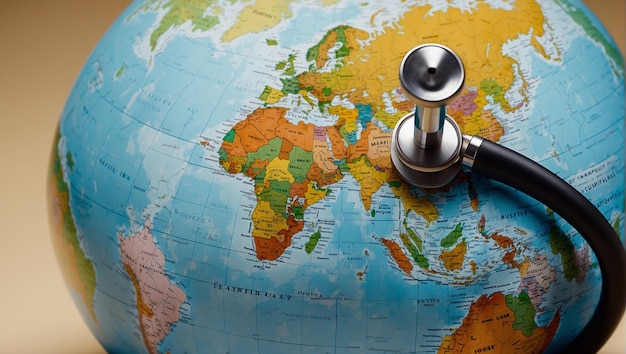
If you’re like most people, following the World Health Organization (WHO) probably wasn’t a big part of your life. But with the COVID-19 pandemic, WHO updates have become crucial news.
WHO is an international body that oversees health initiatives globally. They alert the world to health threats, develop policies, and work to improve access to care. Founded after World War II as part of the United Nations, the WHO has around 7,000 employees spread across over 150 offices worldwide.
Their main tasks include reforming their efforts to better fight epidemics and pandemics and educating people on health improvement globally. They focus especially on helping those at high risk and living in extreme poverty.
WHO’s mission is to set global health standards and advise countries on public health measures. Their programs cover a range of topics such as polio eradication, increasing access to essential health and nutrition services, fighting vaccine-preventable diseases, tuberculosis, and tackling HIV and hepatitis. During COVID-19, WHO has deployed over 70 teams of experts to help guide responses in various countries.
The majority of WHO’s funding comes from the United States and the Bill & Melinda Gates Foundation. Faced with unprecedented challenges, WHO is now fully focused on tackling the novel coronavirus. Their handling of past health crises like SARS in 2003, swine flu in 2009, and Ebola in 2014 received mixed reviews. The COVID-19 pandemic presents a new, complex challenge that demands all available resources.
Health experts believe the COVID-19 pandemic could last at least two years. WHO plays a crucial role in controlling the virus and minimizing deaths worldwide. Experts emphasize that countries need to follow science-driven programs and work together, leveraging their expertise and resources. WHO provides the necessary guidelines to help minimize mortality rates.
Despite criticism regarding WHO’s handling of the pandemic, some defend the organization, arguing that defunding it during a global pandemic isn’t strategic. However, the USA, the largest funder, has cut its contributions by half under President Donald Trump.
WHO defends its actions, stating they responded promptly to the coronavirus. Funding cuts pose potential issues, affecting programs like polio eradication and vaccine development.
Common symptoms of COVID-19 include fever, cough, headache, sore throat, difficulty breathing, fatigue, runny nose, and muscle aches. Complications can involve pneumonia, kidney failure, and death. If you start feeling any symptoms, stay home and self-isolate. The best treatments are drinking lots of fluids, getting plenty of rest, and using a humidifier or taking a hot shower.
While there is no available vaccine for COVID-19, your actions can significantly help stop the spread of the virus.